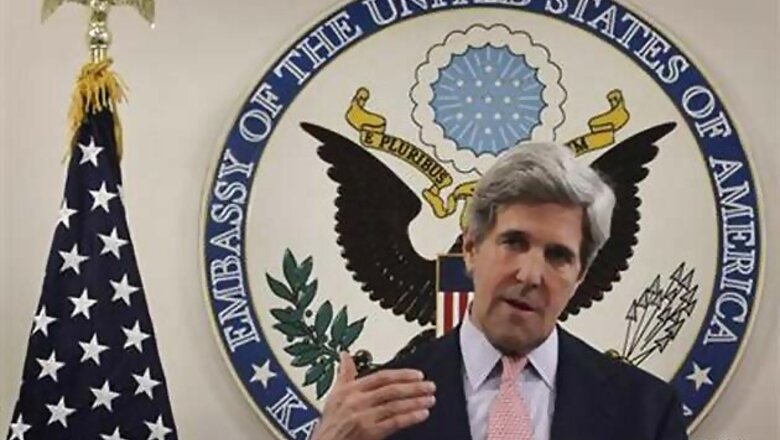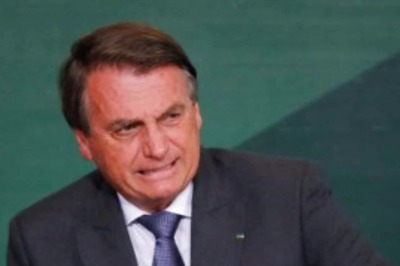
views
Lausanne: Negotiations over Iran's nuclear programme headed for double overtime on Wednesday, beset by competing claims and recriminations after differences forced diplomats to abandon their March 31 deadline for the outline of a deal.
US Secretary of State John Kerry postponed his departure from the talks in the Swiss town of Lausanne for a second time and will remain until at least tomorrow morning to continue negotiations, the State Department said.
On Thursday, the latest round of talks will hit the weeklong mark with diplomats from the five permanent members of the UN Security Council and Germany scrambling to reach a framework accord with Iran.
"We continue to make progress but have not reached a political understanding," spokeswoman Marie Harf said in announcing Kerry's decision.
German Foreign Minister Frank-Walter Steinmeier said negotiators were still facing a "tough struggle," indicating the talks were not likely to end anytime soon. "Tonight there will be new proposals, new recommendations. I can't predict whether that will sufficient to enable an agreement to be reached," he said.
At the same time, Iranian Foreign Minister Mohammed Javad Zarif accused his country's negotiating partners, particularly the US, of having "defective" political will in the talks.
"I've always said that an agreement and pressure do not go together, they are mutually exclusive," he told reporters.
"So our friends need to decide whether they want to be with Iran based on respect or whether they want to continue based on pressure."
The negotiators' intention is to produce a joint statement outlining general political commitments to resolving concerns about the Iranians' nuclear program in exchange for relief of economic sanctions against Iran.
In addition, they are trying to fashion other documents that would lay out in more detail the steps they must take by June 30 to meet those goals.
But Iran has pushed back not only on the substance of the commitments the sides must make but to the form in which they will make them, demanding that it be a general statement with few specifics.
That is politically unpalatable for the Obama administration which must convince a hostile Congress that it has made progress in the talks so lawmakers do not enact new sanctions that could destroy the negotiations.
Zarif said the result of this round of talks "will not be more than a statement."
A senior Western official pushed back on that, saying that nothing about a statement had been decided and that Iran's negotiating partners would not accept a document that contained no details. The official was not authorized to speak to the negotiations by name and spoke on condition of anonymity.




















Comments
0 comment